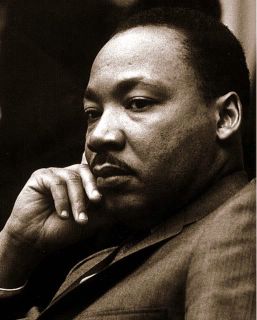In Search of Libertopia (2)
Again, Brian's words are teal; mine are white.
Joey seems to think that spending more money of failed federal welfare programs is a solution to the social ills of society. In fact, he blames the failure of these programs on cutbacks by conservatives.... Many of these programs were failures before conservative cutbacks began with the election of a Republican Congress in 1994.
Actually, I specifically stated that the cutbacks began shortly after the programs were instituted, and have largely been executive, not legislative! President Johnson himself originally limited the scope of the War on Poverty programs to fund the Vietnam War (which, as I said, was his greatest failure). Still, they accomplished a lot during the approximately six years of his presidency. Then, more cutbacks were instituted during the Nixon and Ford administrations, with the Office of Economic Opportunity being abolished along with many of its programs to help people become financially independent and self-sufficient. The “Reaganomics” of the 80’s limited social uplift programs even more, coupled with their starving for the benefit of military buildup. George Bush Sr. actually did alright (for a Republican), and Clinton accomplished a lot for what he had to work with in Congress. By the time Republicans took over Congress with their counterfeit “Contract with America,” the War on Poverty had already been pushed to the side for three decades.
There are indeed plenty of success stories [from Social Security, Medicare, and Medicaid]. Every day I'm around people who are walking and breathing and manipulating and enjoying everyday life because of their Medicare benefits. But, the perception is that there should be more. Many of the people where I work have worked hard all their lives and have earned their benefits. They are thankful for them. They are available to them, so they use them.
Good! I’m glad you agree.
The issue here isn't really the success of the program as much as it is the government's role in them. The Medicare ship is sinking. For someone my age, the age of recieving benefits is already moved back to 67 and may be as late as 69 by the time I'm ready to retire. This is not the result of the government conservative holding down spending. It's from the fact that the government can't afford to keep up the spending at its current levels.
It’s that the government can’t afford to keep spending in the current way--i.e., in war and all manner of defense excess, and kickbacks to defense contractors, for one. I acknowledge that the Medicare and Social Security systems are in need of revision--even Democrats know that (and I believe better personal health practices and medical advancements hold much of the answer). There are many factors in the age of benefits and the pool of potential recipients that have changed since the programs were instituted; the world is not static, and it is changing faster now than it ever has before. Average lifespan and healthy working age has increased. Baby boomers, the largest aging generation ever, are nearing retirement age and will live significantly longer than their parents. And, with the dynamic, democratic system we have by and for the benefit of all citizens, we can meet those challenges and transformations as they come; they may take creative solutions. People should be provided adequate health insurance by their employers, or pay for it themselves if they can afford it. But we should not entrust the health and very lives of American people, not just the elderly but the poor and the children of poor families, over to companies that have more interest in money than human life.
Over and again it has been demonstrated that if individuals had control of the money that the government takes through taxation, individuals would be further ahead, with greater funds available. This holds true for Social Security benefits also.
It has been demonstrated? When, and by whom? Does their money somehow multiply beyond what it is in the hands of the government for their benefit? Perhaps, for wealthy investors utilizing tax shelters and loopholes.
The solution is not to allow more money to go into government hands. It is to let people keep their money so they may better control their own health care and retirements.
How can people control their own health care and retirements when they can hardly even afford to live while they’re working?
I have to think that if people were given the opportunity to manage their own money all along, rather than the 15% picked from wage-earners' pockets for Social Security, and the additional filched through income taxes, even many of those needs would be greatly reduced.
How? How would I (a poor person) be better off keeping all of my as-of-yet insufficient income than giving, along with everyone else, to Social Security and income tax what comes back to me (with more) through the way those taxes are spent to ensure my welfare and increase my opportunities?
The issue comes down to who is responsible for me and my family and our care. In short, I am responsible for me and my family. Not Joey, Not George W. Bush, not Senator Lugar, not anyone but me.
So if we consider, say, a below-poverty-level inner-city child with a bleak future, you and I and all other Americans have nothing to do with him or her and no responsibilities towards his or her welfare and education, even though his or her parents can’t sufficiently provide for either? What about the fact that we are all in an interdependent web of social interaction and existence?
The track record is simple: socialism requires dictatorship. Whenever a free person is required to surrender what is his/hers, freely and legally earned, whether he wants to or not, it is either theft or dictatorship.
That is simply incorrect! I have given numerous examples of democratic socialism.
Places where socialism has been chosen democratically have also been places where it has been democratically rejected later - whether it is the U.K., Germany, and (by some counts) even Mexico.
That is highly inaccurate. Those countries have never been socialist. You’re merely observing the cultural ebb and flow of general liberalism vs. general conservativism--of center-left vs. center-right--that has taken place in those countries, as it has in our own. The U.K. government has now shifted to more to the left since the days of Margaret Thatcher, and the Germans’ popular opinion is back in favor of the Social Democratic Party.
The places you mentioned, "Norway, Sweden Denmark, Canada," have a mixed track record. They are certainly prosperous economically, but Canada just elected a right wing government.
How is economic prosperity and a high general standard of living a mixed track record? Canada did elect a conservative president; we’ll see how that plays out.
I admit that Stalinism is an extreme, but it is the natural outgrowth of Leninism, which is the largest manifestation of Marxism....[Stalinist dictatorial regimes].... These economic systems, in order to function as 'socialist states' have had to rely on dictatorship. It's not a red herring. It's the natural course of big government.
Marxism in its historical context was about the rise of the people to throw off the shackles of industrial overlords, which was part of the reason for the Russian Bolshevik Revolution. Lenin had some ideas which were at odds with Trotsky’s democratic ones, which were based on the writings of Marx, and Stalin later hijacked the whole Revolution. Stalinism is not equivalent with democratic socialism! I’ve given several examples of democratic socialist countries, which are by definition the antithesis of dictatorial countries.
I've been to many places where people work many hours and pull themselves out of the welfare trap. However, more often I've seen people who see their welfare benefits as their 'pay check'. I have taken food to homes and families where there lottery tickets and beer cans sitting on the coffee table. Just this past Sunday I was asked by a woman for assistance with food who had the audacity to ask for milk for her dog. I got food for her and her live-in boyfriend, but no milk for the dog.
But she, like so many others, is a victim of the trap. She has become dependent on assistance, with little or no incentive to get off the program.
First, conservatives aren’t the only ones to fight to make welfare more effective and efficient. Second, I believe that your idea of the welfare trap and lack of incentive to work is misguided. People don’t want to be on welfare; welfare is not a very good way to live and is not glamorous. Most people want more than that--they want more than just the needs of food and shelter and medicine (which is what welfare gives); they want to have an enjoyable life, to be able to buy the things they want, and, most importantly, to engage in something meaningful and contribute to society. Laziness is not created by welfare.
I’m intrigued by the idea of a living wage. The idea is that a small wage for simple living expenses is given to everyone. Everyone pays into it who makes wages, and everyone draws from it. Those who are well-off pay into it and get back from it regardless. But those who are unemployed and in lowing paying jobs and actually get more back than they pay into it have basic needs met, and opportunities provided to have and do and become more if they pursue it. We could also focus on whole communities and community programs. Top priorities would be affordable housing, better schools and social programs for the benefit of youth and adults to lift them out of the self-perpetuating system of ignorance and poverty.
You are correct instating there is a need for Head Start-type programs. But again, I have to ask if this is the government's job. Wouldn't the private sector be a much better avenue for this? Let free enterprise do it's thing. Even here in my little town of Roann we have two day care centers operated privately - no Head Start needed.
This is the debate between public and private education. If public education were to be abolished, who would pay for the education of poor children whose families can’t afford private school tuition? Should they simply not have access to education? It’s the same for a working-class or student single-mother who can’t afford day care. I’ve known mothers who were practically working just for their children to go to day care.
Regardless of the best method of social welfare, which is debatable, I believe the key in opportunity is education--with access to the right education, almost all people will want to be successful and find their place in human society.
Let me end with two quotes by an American from whom I draw a great deal of spiritual, political and personal insight, and whom you have said you admire as well:
“You can't talk about solving the economic problem of the Negro [or in this case, any of the very poor] without talking about billions of dollars. You can't talk about ending the slums without first saying profit must be taken out of slums. You're really tampering and getting on dangerous ground because you are messing with folk then. You are messing with captains of industry… Now this means that we are treading in difficult water, because it really means that we are saying that something is wrong…with capitalism… There must be a better distribution of wealth and maybe America must move toward a Democratic Socialism.”
“Communism forgets that life is individual. Capitalism forgets that life is social, and the kingdom of brotherhood is found neither in the thesis of communism nor the antithesis of capitalism but in a higher synthesis. It is found in a higher synthesis that combines the truths of both.”
-Dr. Martin Luther King, Jr.
I believe that it is towards the truths of both our personal drives and meaning and our interaction and mutuality as a human society that we will find the way for humanity to move forward to solve these problems. It will be a better society, not just for some people, but for everyone.







